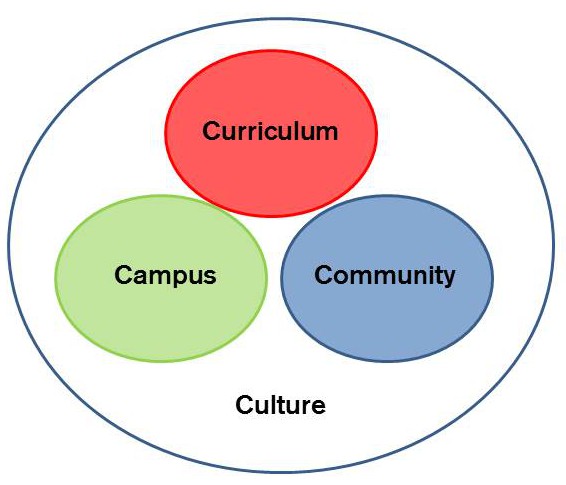
June 4, 2014, by bwzhr
New guidance for Education in Sustainable Development
New guidance from the QAA and HEA on Sustainability in Higher Education
In June 2014, the Quality Assurance Agency and the Higher Education Academy publishes Education for sustainable development: Guidance for UK higher education providers. This is a breakthrough document signalling the increasing imperative for universities to proactively support the learning of their students (and staff) for sustainability. It picks up on concerns expressed in recent years that HE graduates are not well-equipped to lead the changes within our societies necessary to decrease our environmental impact upon the planet and therefore ourselves.
The guidance document has been produced after extensive consultation within the sector and by a working group involving academics from many different universities. It has taken us nearly a year, communicating largely through email but also attending day-long workshops at the University of the West of England in Bristol. The process has involved considerable debate as our own different perspectives and angles on sustainability came to the fore and we considered how best to offer guidance to a broad spectrum of colleagues involved in programme design and delivery.
Here at Nottingham we are building a strong reputation as a sustainable university. We routinely win awards (Nottingham was ranked first in the Greenmetric Ranking of World Universities 2013), we have strong research partnerships, and our recent innovations in online teaching (our first NOOC and MOOC) have comprised interdisciplinary explorations of sustainability.
But the QAA/HEA guidance moves the sustainability in higher education agenda on a further step. It explains what kinds of outcomes graduates can gain from learning about sustainability, and it explores the ways in which we can work with our students to help them achieve these outcomes. The document is not prescriptive – it is a guidance code. And much of it is itself transferable to other big themes within our teaching and learning strategy (e.g. internationalisation, employability). It is worth having a look – the nature of higher education is fast changing in the 21st century and this signals new ways of looking at the core curriculum.
No comments yet, fill out a comment to be the first

Leave a Reply